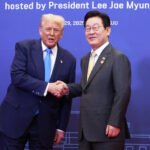
The Korean won tumbled past 1,410 to the dollar on Friday for the first time in four months, rattled by a resurgent greenback and rising unease over Washington’s insistence that Seoul deliver a $350 billion investment package “up front.”
The currency traded at 1,413.20 per dollar in late afternoon dealings in Seoul, more than 13 won weaker than Thursday’s close. It was the first break above 1,410 since May 15.
The decline tracked broad dollar strength, fueled by the stronger-than-expected world’s largest economy’s growth overnight that dimmed prospects for imminent Federal Reserve rate cuts.
Revised second-quarter GDP grew at an annualized 3.8%, the fastest pace since the third quarter of 2023, while US jobless claims also fell below forecasts.
The dollar index rose 0.7% to 98.49.
WASHINGTON’S DEMANDS REVIVE 1998 MEMORIES
But traders said local concerns amplified the selloff.
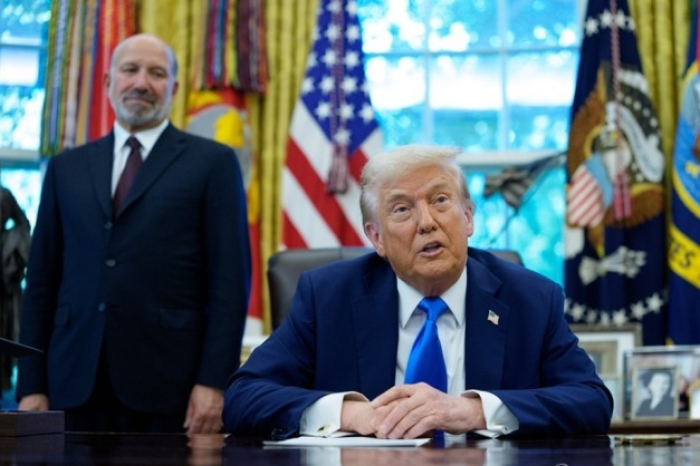
President Donald Trump reiterated that South Korea’s $350 billion investment pledge under the bilateral trade accord must be paid “up front,” while Commerce Secretary Howard Lutnick has been urging Seoul to increase the amount, according to a Wall Street Journal report.
Tensions escalated after South Korean President Lee Jae Myung called for “commercially rational” tariff negotiations during a meeting in New York with US Treasury Secretary Scott Bessent earlier.
The two governments remain divided over the structure of Korea’s commitment, despite a provisional July deal under which Washington agreed to cut tariffs on Korean goods in exchange for major US investments.
Seoul prefers to minimize direct equity contributions, leaning instead on loan guarantees and indirect financing.
Washington has been pushing for a Japan-style framework, in which much of the investment would come in cash equity, with US authorities directing deployment and retaining most of the returns.
Korean officials warn such an arrangement would expose the country to significant currency risks and have sought a bilateral swap line as part of any final agreement.
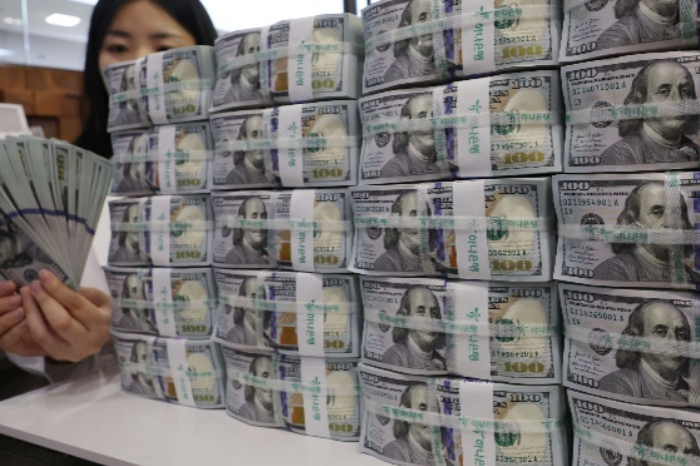
Economists caution that US demands could strain Korea’s $416 billion in foreign reserves and unsettle financial markets, reviving memories of the 1997-98 Asian financial crisis.
“The won is under pressure from both US data and investment uncertainties,” said Wi Jae-hyun, economist at NH Futures.
Foreign investors, who had been heavy buyers of Korean equities in recent weeks, turned net sellers on Friday, adding to the downward momentum.
The Kospi ended down 2.5% at 3,386.05, dipping below the 3,400 threshold for the first time in 10 sessions.
SEOUL UNVEILS 24-HOUR TRADING PLAN
The won’s retreat also followed Seoul’s announcement of a plan to allow 24-hour trading of the currency next year, part of a broader effort to expand access to its financial markets and bolster its case for inclusion in MSCI Inc.’s developed-market index.
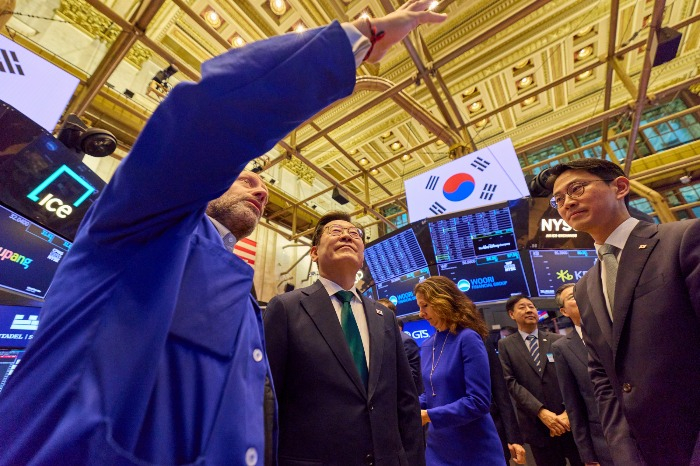
The Finance Ministry said earlier that the plan will include easing restrictions on nonresident transactions and establishing an offshore settlement platform to reduce frictions for global investors.
Writing on social media after his visit to the New York Stock Exchange, President Lee described the reforms as an effort to deliver a “Korea premium.”
The move builds on changes in 2024, when FX trading hours were extended to 2 a.m. from a 3:30 p.m. close.
Limited access to the won has been a key reason MSCI has kept Korea in its emerging-market category.
Asia’s fourth-largest economy was placed on MSCI’s watch list for an upgrade in 2008 but dropped in 2014, where it has remained for more than a decade.
Analysts estimate an upgrade could bring about $30 billion into Korean equities.
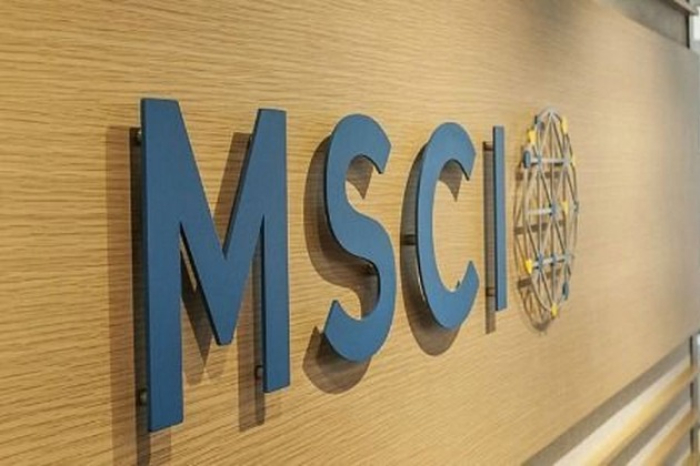
Still, some warn volatility could climb once the market operates for 24 hours, particularly in thinner overnight sessions.
The government, Bank of Korea and major financial institutions will form a task force and release a road map for the round-the-clock FX trading system by year-end.
Seoul’s reserves stood at $416.3 billion at the end of August, up from $411.3 billion in July.
Asia’s No. 4 economy has maintained its ranking among the world’s 10 largest reserve holders for five straight months after slipping one notch in April.
By Jin-gyu Kang and Ik-Hwan Kim
josep@hankyung.com
Sookyung Seo edited this article.

